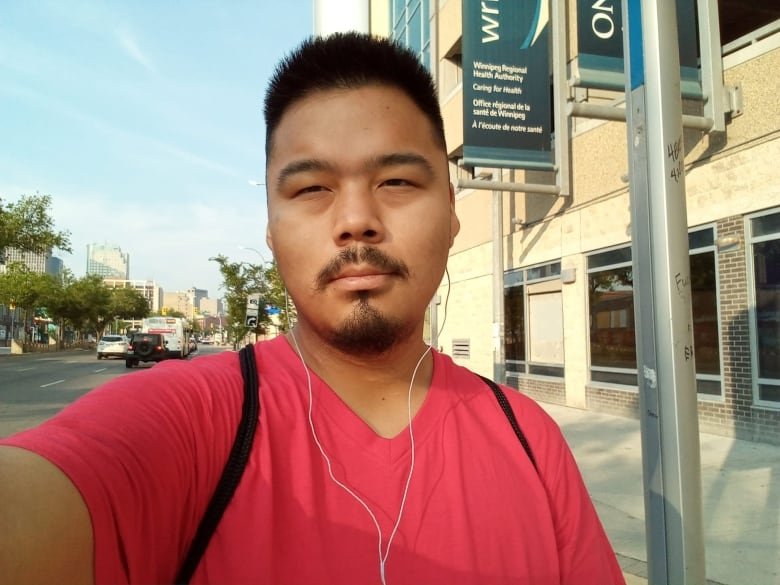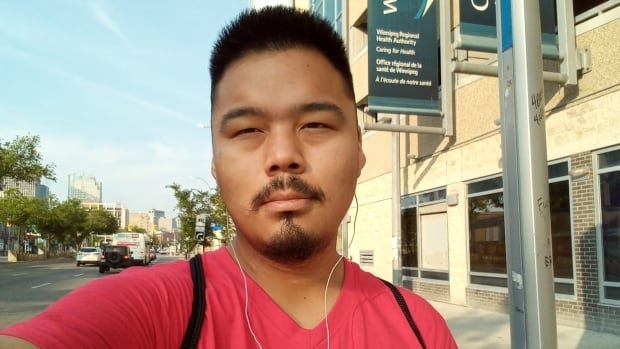Community members and advocates say better supports and resources are needed for people from Canada’s North who are sent far from home to serve prison sentences, after a Nunavut man was shot and killed by Winnipeg police on Sunday.
Jordan Charlie, 24, had been released from custody in Manitoba on Nov. 19, after he pleaded guilty to assault with a weapon, possessing a weapon for a dangerous purpose and three other related charges for incidents that happened this year.
Days before his death, his lawyer told a Manitoba court the eventual plan was for him to return to Nunavut because he was stuck in Winnipeg living transiently or in shelters.
Charlie’s lawyer also said he had no way of getting home after his release from Stony Mountain Institution in Manitoba.
“Our community is calling out for help to have increased access to housing, increased access to mental health services that are so lacking here in the city of Winnipeg for our people,” said Nikki Komaksiutiksak, the chief executive officer of Tunngasugit Inuit Resource Centre in Winnipeg, an organization that was trying to help support Charlie when he was released from prison in 2023.
Komaksiutiksak said Charlie had trouble accessing other supports when he was out of custody.
“He was wandering the streets trying to stay warm … not knowing,” she said. “He was helpless. He was hopeless.”

Winnipeg police say prior to the shooting, Charlie had an edged weapon, which he didn’t drop when officers told him to. Video posted to social media shows him taking a couple of steps toward the officers before they shoot him.
Police said he stabbed an officer in the neck before guns were drawn.
The Independent Investigation Unit of Manitoba, which examines all serious matters involving police in the province, is now investigating Charlie’s killing.
Being sent to southern prison ‘cultural shock’
Piita Irniq, a former Inuit elder in Ontario correctional facilities, told CBC News “going to southern prison is a cultural shock for Inuit from the Arctic.”
“Part of being part of the prison system in the south … the food is different, obviously,” said Irniq. “Prison life is very different, obviously, so there’s a lot of cultural shock to a lot of people, when they’re not used to being observant of the land anymore.”
Irniq also said prisons beyond the North needed to help inmates stay connected to their community and way of life.
“I always felt that having an Inuit elder at prisons in southern Canada is very much needed to help the Inuit inmates,” he said.
The executive director of the John Howard Society of Canada agrees.
Catherine Latimer described the circumstances of Charlie’s death as “very, very sad.”
“I would really like to see what reintegration plan had been put in place for him,” said Latimer. “I think we can learn from that and try to figure out how to put the supports in place that would help people like Mr. Charlie.”
Latimer said the lack of federal prisons in Canada’s North means anyone given a term of two years or more will be forced to serve their sentence in the south, which can pose problems when they’re eventually released.
“You should be preparing them to go back safely into their own communities and it would be very difficult to do that,” she said. “And it would be very difficult to do that if you’ve got them in a culture that doesn’t reflect their upbringing and where they’re going to be when they get out.”
Latimer said the plan for reintegrating someone who has been released from prison back into society should be to get them in the environment where they’re most likely to be successful.
Taking someone who is “culturally alienated from southern Canada” and expecting them to be successful there “is a bit of a challenge,” Latimer said.
Nunavut NDP member of Parliament Lori Idlout said Charlie was failed by the systems put in place to make sure he got the help he needed.
“Whatever hardships that he might have experienced as a child, not to be given the supports to heal, not to be given the supports to gain better coping skills, those are the areas of focus that we also need to ensure to make sure that Inuit are able to cope with difficulties, including when they are confronted by [police],” said Idlout.
Those thoughts were echoed by Paul Irngaut, vice-president of Nunavut Tunngavik Inc., the organization responsible for ensuring the Nunavut Land Claims Agreement obligations to Inuit are upheld.
“It’s a failure, in my view, that the system didn’t bring this person back home,” he said. “Even though he was incarcerated, he did this time … and then he was just let go into a city that he might be familiar with, but it’s not his home.”

Meanwhile, Komaksiutiksak is working with Charlie’s family to try to get his body back to Nunavut.
Tears forming in her eyes, she said Charlie’s photo will be added to a memorial wall at Tunngasugit for Inuit who have died in Winnipeg.
“We want to honour Jordan because this is a really huge, devastating impact within our community.”


